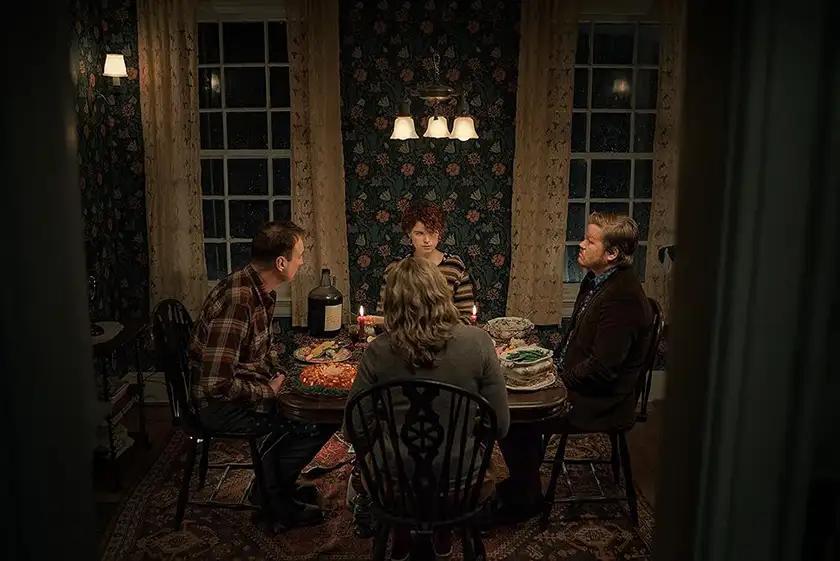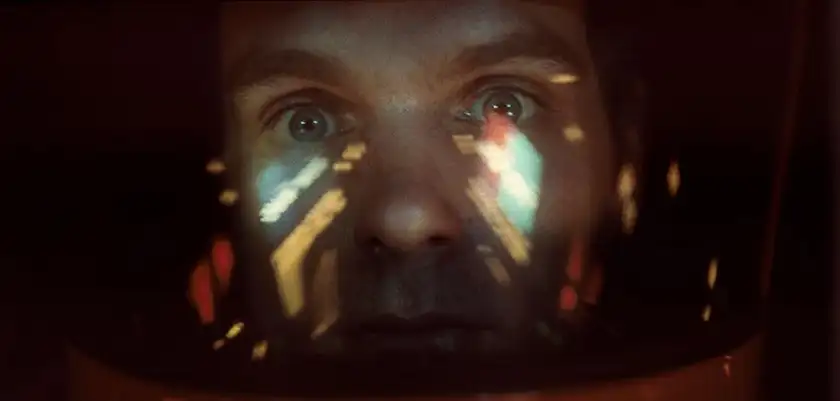We’ve all come across a fair share of abstract or complex films that baffle us. What makes confusing movies good, what makes them fail, and how much can they break the rules?
How many times has this happened to you: you get to the end of a film, and your first reaction is to pull a Krusty the Clown and go, “What the hell was that?!” Not necessarily because you can’t believe what a disaster it is or it betrays some precious source material from your childhood, but because … you can’t even understand half of it. Confusing movies like these range from the extremely abstract stories of David Lynch, the mechanically complex tales of Christopher Nolan, or something like 2001: A Space Odyssey that starts off straightforward but eventually plunges into madness.
Most of us have come across at least a few confusing films like this, and it’s likely we’ve each had different reactions to different ones, as well as different overall opinions on them as they settle with us. But what makes confusing movies good? How do some of them leave us scratching our heads in delight while others just leave us doing so in frustration? Why do we bother spending hours interpreting certain befuddling works while dismissing others as nonsense not worth our time? And should we blindly accept a film’s merit even if we can never understand it? Let’s go ahead and try to unravel our own puzzle to find out!
Feeling Vs. Understanding Confusing Movies

“Don’t try to understand it. Feel it.” That is a quote from the film Tenet, which itself has been mocked for using that notion as an excuse to not make any sense. There’s merit to this criticism that we’ll cover later, but we should first ask what a movie is, above all else, supposed to do. For me, the answer is making you feel something. Its primary goal is getting you invested in the characters, story, or even environment that’s being portrayed on the screen. While a majority of films accomplish this through instantly identifiable threads and situations, some manage to get away with it before you’re even sure what’s going on … sometimes without ever being sure.
When I first saw Tenet, a complex film in which secret agents use time inversion to save the world, I was totally lost at many points without a clue what was happening. But I still kept wanting to watch because seeing cars crash, buildings blow up, and people fight in backwards and forwards time simultaneously, with such intense consistency, is just so damn awesome. The Lighthouse portrays two lighthouse keepers turning on each other for reasons that are kept deliberately ambiguous. You get no clear answers (other than, “Gee, Willem Dafoe sure is gassy.”), and upon first viewing, it had me questioning whether anything I was seeing made any sense. But it’s such a uniquely spooky, otherworldly experience from start to finish that I could never bring myself to look away.
We’re creatures of logic just as much as emotion and sensory responses. So, even when the logic isn’t clear, those responses can fill in the gaps in entertaining us. Either the director is just that good at bringing a creative world to life, the performances are so strong that you want to follow the characters anywhere, or what nuggets of answers you can grasp are so intriguing that you keep following the bread trail they leave. You want to think more about what you just saw, and you even want to come back to the film a second time to figure it out. Not only does it become fun to try and solve the puzzle, but you know it’d drive you crazy if you didn’t try to attach meaning to something you found so engaging.
On the other hand, sometimes you can be more invested because you can’t fathom what you’re seeing. The bewilderment and primal anxiety of witnessing something so inexplicable can absolutely be preyed upon and used to a film’s advantage. Horror films in particular thrive on this, because they’re all about making you afraid, and nothing is scarier than the unknown … except maybe a U.S. election. Obviously, this is all insanely subjective. What can transfix one viewer will leave another viewer too distracted by their own questions. But there’s clearly an art to intentionally confusing storytelling and reasons why it can win people over.
But that also means there are reasons it can’t …
When Confusing Movies Don’t Work

If a movie’s goal is to get an emotional response out of you, there’s obviously a problem if the response is different from what was intended … or, even worse, nonexistent. That’s bad on its own, but if it happens while you also can’t understand what’s going on, that can make for an all-around miserable time. In these cases, there are two levels of dissatisfaction at play: not understanding what’s going on, and not enjoying anything on a surface level. And, funnily enough, this can happen with the same movies that others do enjoy sitting through.
This is probably an unpopular take, but an example for me is the 2020 film I’m Thinking of Ending Things. The film is about a woman who experiences strange changes to her world when taking a car trip to meet the boyfriend’s parents … a long, long car trip that takes up nearly half the movie, filled with long-winded conversations that numbed me to the point of such disinterest that I didn’t even care to unpack its highly abstract conclusion. She Dies Tomorrow, a film in which a girl believes she’ll die the next day, actively tries to put its viewers in a disoriented, trippy state, but the tactics are so repetitive, awkward, and emotionally lacking that, again, I didn’t even care enough to start trying to figure it out.
A common defense of confusing movies is that you have to see them multiple times to understand them, or that you just didn’t get it. Sometimes that’s true … but a film needs to make you want to see it again and want to get it. Even if you’re unsure how you feel on first viewing, there should be something about what you saw that stays in your head and compels you to go back to it. When either that special something isn’t there or is bogged down by problems like poor pacing or a bland base-level story, I think it’s totally fair to say, “No, I won’t watch it again.” And I believe, depending on how well you explain yourself, it’s totally possible to call a film a failure for these reasons, even if you don’t “get it.”
Can a Film Be Good if it Doesn’t Make Sense?

When I first saw Beau is Afraid, which portrays a man experiencing frightening phenomena to visit his mother, I was legitimately sucked in for the entire three-hour runtime. It put me in an uncomfortable, almost hypnotized state unlike any other movie I’d seen … But if you were to ask me whether it makes any lick of sense, I’d instantly say no. I tried to come up with a few different interpretations of what it could mean, but each one has major flaws that stop me from being happy with it. Now, you could say the point of movies like this is not to be picked apart, but rather just embraced for the reaction they get out of you. After all, that’s what I’ve done with other confusing films I love, right? Well … not exactly.
Like I said, you should try to feel a film before you properly understand it … but I want to eventually understand it. Just because a film is interpretive, complex, or intentionally confusing, I don’t give it an automatic and permanent pass to be blindly accepted. If a child just took a bunch of paint and splattered it all over the wall with no thought or purpose, and then claimed their work was a masterpiece because it was up to interpretation, you’d say, “No, you just made a big mess. Now go to your room, Joe.” … Okay, I may be projecting there. But the point is, even films of this nature need to have some logic and some thought process on the creator’s end.
That’s not to say every movie operates under the same logic. You wouldn’t analyze Mulholland Drive the same way you would 12 Angry Men. But in the case of Mulholland Drive and other David Lynch movies, even if you’re lost at many points, you can still sense that Lynch himself is aware of what he’s doing and why he’s doing it. There’s a way to pick apart the details and come to a solid interpretation, even if it’s not the one and only possible interpretation. Even when a film is operating under nontraditional rules, there are still rules. And if you’re making an effort to explain a film’s emotional logic, that in and of itself is using a certain kind of logic.
Here’s how I look at the issue: if you make an argument that you shouldn’t question a film’s meaning and should just accept it for what it is, then what’s stopping you from doing that for every other movie in existence? How can you then question anything else that could be considered poorly thought out? I don’t need to always know what’s going on, but I need the film’s creator to know what’s going on, or at least have a laid-out thought process that they’re operating with when putting the film together. If you’re not bothered by something not adding up, great! But don’t act like it’s foolish for someone else to feel differently. Because without that, what’s stopping anyone from doing literally anything they want without care, effort, or discipline? That’s not interesting or impressive to me.
Why We Need Confusing Movies

So, we’ve seen there’s a way to do confusing movies well, a way to do them poorly, and different boundaries with how they operate … but all from my own viewpoint. I need to eventually find some method to the madness with these kinds of films, but some people can be thrilled even without it. It’s a lot like how I can overlook plot holes in a more straightforward story if I’m just that invested in the bigger picture, while others are much more bothered by them. But even within a single viewer, there’s usually flexibility with how much we let slide depending on the movie.
I still love Beau is Afraid solely for how viscerally insane it is, even though I acknowledge I don’t get it as a story. I can come to an understanding of how films like 2001, The Shining, and Men operate, but others may call them preposterous even after trying their absolute best to make sense of them. And I can give a confusing movie time to sink in, but others can only appreciate films that they instantly grasp. After all, the more you have to think about its basic meaning, the less spontaneous and therefore less impactful the initial reaction can be. It’s such a grey area, but it’s a grey area that needs to exist through different kinds of films.
I’m all for a good, concrete story, but I’ve also been just as impacted by something that’s taken hours, days, or even weeks to truly comprehend. In fact, those are the kinds of movies that have most often expanded my tastes, broadened my horizons, and even occasionally made me question how I think in general. Everyone has their own preferences, which means any type of movie should be available to pick from to satiate them. So, find what clicks best with you and don’t be afraid to branch out into something that’s a bit harder to grasp … and don’t be afraid to say when a confusing movie just doesn’t win you over.

